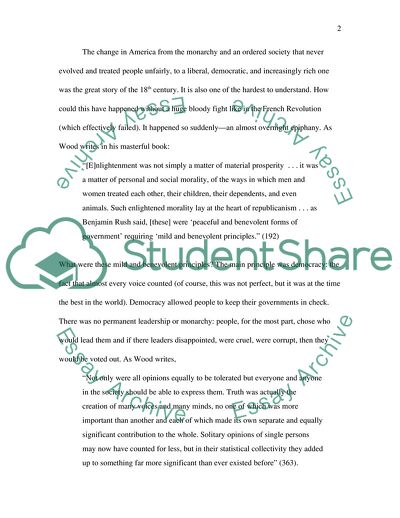
- Home
- Free Samples
- Premium Essays
- Editing Services
- Extra Tools
- Essay Writing Help
- About Us
- Studentshare
- Subjects
- Miscellaneous
- How does travel define or characterize modernity in Davis' Martin Guerre, Wood's Radiclism, Uglow's Lunar Men & Conrad's Heart of Darkness
How does travel define or characterize modernity in Davis' Martin Guerre, Wood's Radiclism, Uglow's Lunar Men & Conrad's Heart of Darkness - Essay Example

- Subject: Miscellaneous
- Type: Essay
- Level: Masters
- Pages: 4 (1000 words)
- Downloads: 0
- Author: etoy
Extract of sample "How does travel define or characterize modernity in Davis' Martin Guerre, Wood's Radiclism, Uglow's Lunar Men & Conrad's Heart of Darkness"
Heart of Darkness on the other hand is the story of a country that is becoming a kind of hell. It is changing dramatically with Western intervention and not for the better: its people have become chained-up slaves and its resources are being virtually stolen. So what can explain the differences between these two dramatic alterations—one almost peaceful, the other terribly cruel and violent? The answer lies in democracy and the power of the human voice. This is an important point the Chinua Achebe makes in his essay on Heart of Darkness.
In a place where ordinary people have a voice, they have power over their own lives and can avoid violence. In a place where they have no voice they are nothing but slaves. This essay will examine this important proposition. The change in America from the monarchy and an ordered society that never evolved and treated people unfairly, to a liberal, democratic, and increasingly rich one was the great story of the 18th century. It is also one of the hardest to understand. How could this have happened without a huge bloody fight like in the French Revolution (which effectively failed).
It happened so suddenly—an almost overnight epiphany. As Wood writes in his masterful book: “[E]nlightenment was not simply a matter of material prosperity . . . it was a matter of personal and social morality, of the ways in which men and women treated each other, their children, their dependents, and even animals. Such enlightened morality lay at the heart of republicanism . . . as Benjamin Rush said, [these] were ‘peaceful and benevolent forms of government’ requiring ‘mild and benevolent principles.” (192) What were these mild and benevolent principles?
The main principle was democracy: the fact that almost every voice counted (of course, this was not perfect, but it was at the time the best in the world). Democracy allowed people to keep their governments in check. There was no permanent leadership or monarchy:
...Download file to see next pages Read More
- TERMS & CONDITIONS
- PRIVACY POLICY
- COOKIES POLICY